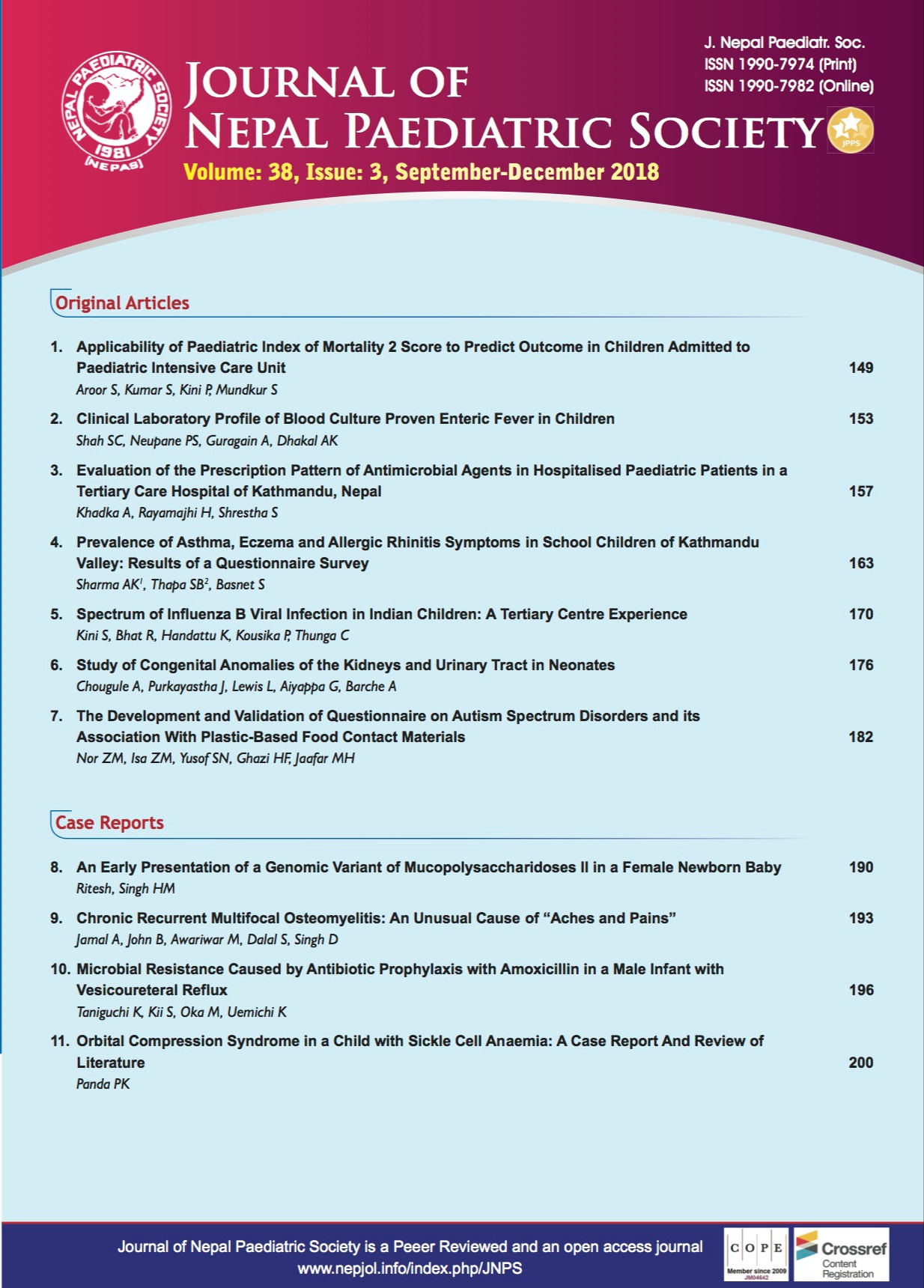The Development and Validation of Questionnaire on Autism Spectrum Disorders and its Association With Plastic-Based Food Contact Materials
DOI:
https://doi.org/10.3126/jnps.v38i3.20671Keywords:
autism spectrum disorder, bisphenol A, phthalates, questionnaireAbstract
Introduction: Autism is a neuropsychiatric disorder. Multiple factors have been identified as causes of autism spectrum disorder. Many studies indicated genetic as the main risk factor, but environmental risk factors are also seen as contributing factors. Exposure to environmental pollutants such as endocrine disrupting chemicals (EDCs) can occur as early as in the mother’s womb. The main concern of EDCs in food packaging are Bisphenol A (BPA) and phthalates. The objectives of this study are to develop and validate a questionnaire for the assessment of habitual usage of plastic- based food contact materials (FCM) as a proxy for exposure to this group of EDCs.
Material and Methods: The questionnaire developed by organising a focus group discussion among experts. An interview-guided pilot study was then done to 250 respondents for construct validation process. In the validation process, test-retest study for reliability, Cronbach alpha for internal consistency, exploratory factor analysis and confirmatory factor analysis were done.
Results: The questionnaire achieved kappa value ranged between 0.800 to 0.900 for knowledge, 0.610 to 0.815 for perception and 0.607 to 1.000 for self-care product section. Cronbach alpha value ranged between 0.600 to 0.780.
Conclusions: Exploratory and confirmatory factor analysis approved the final model for phase one consisting of four domains with total of 13 items and final model for phase two consists of three domains with total of nine items.
Downloads
Downloads
Published
How to Cite
Issue
Section
License
Authors who publish with this journal agree to the following terms:
Authors retain copyright and grant the journal right of first publication with the work simultaneously licensed under a Creative Commons Attribution License that allows others to share the work with an acknowledgement of the work's authorship and initial publication in this journal.
Authors are able to enter into separate, additional contractual arrangements for the non-exclusive distribution of the journal's published version of the work (e.g., post it to an institutional repository or publish it in a book), with an acknowledgement of its initial publication in this journal.
Authors are permitted and encouraged to post their work online (e.g., in institutional repositories or on their website) prior to and during the submission process, as it can lead to productive exchanges, as well as earlier and greater citation of published work (See The Effect of Open Access).



